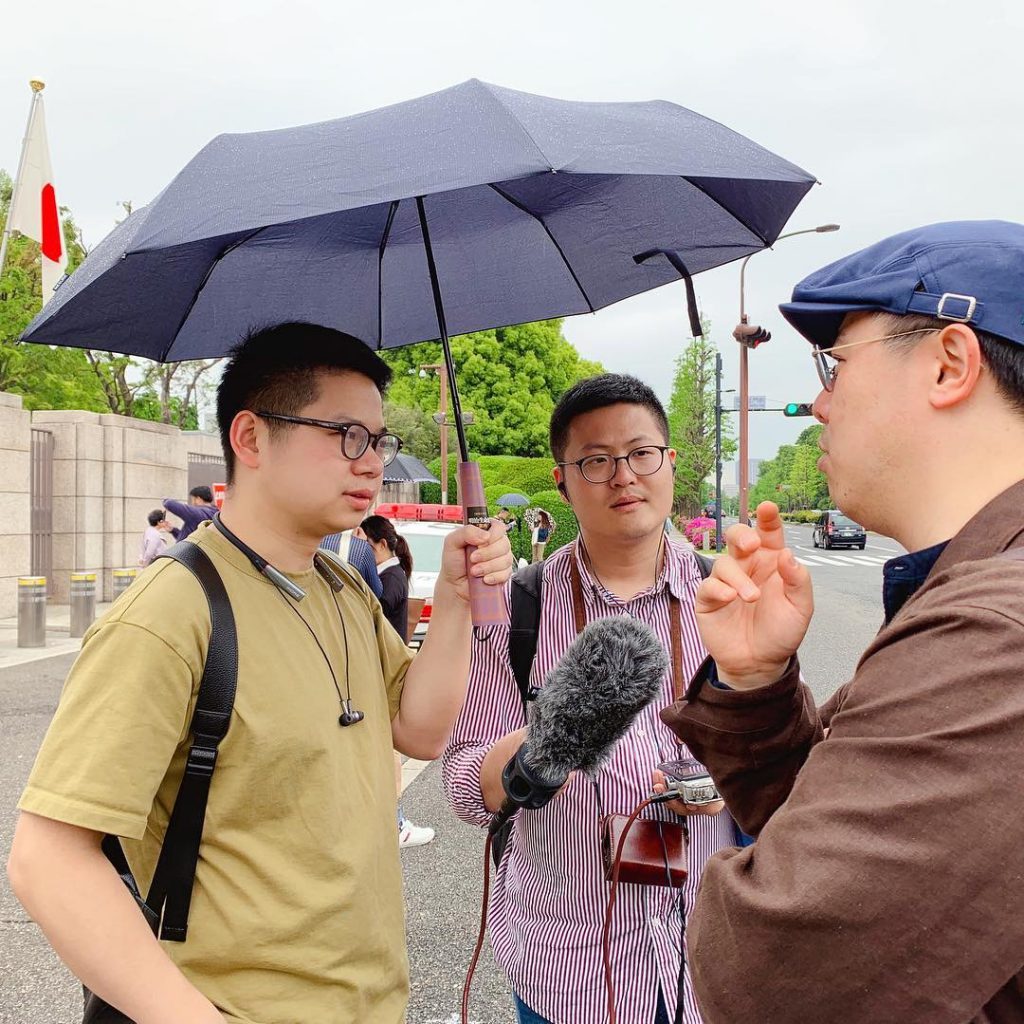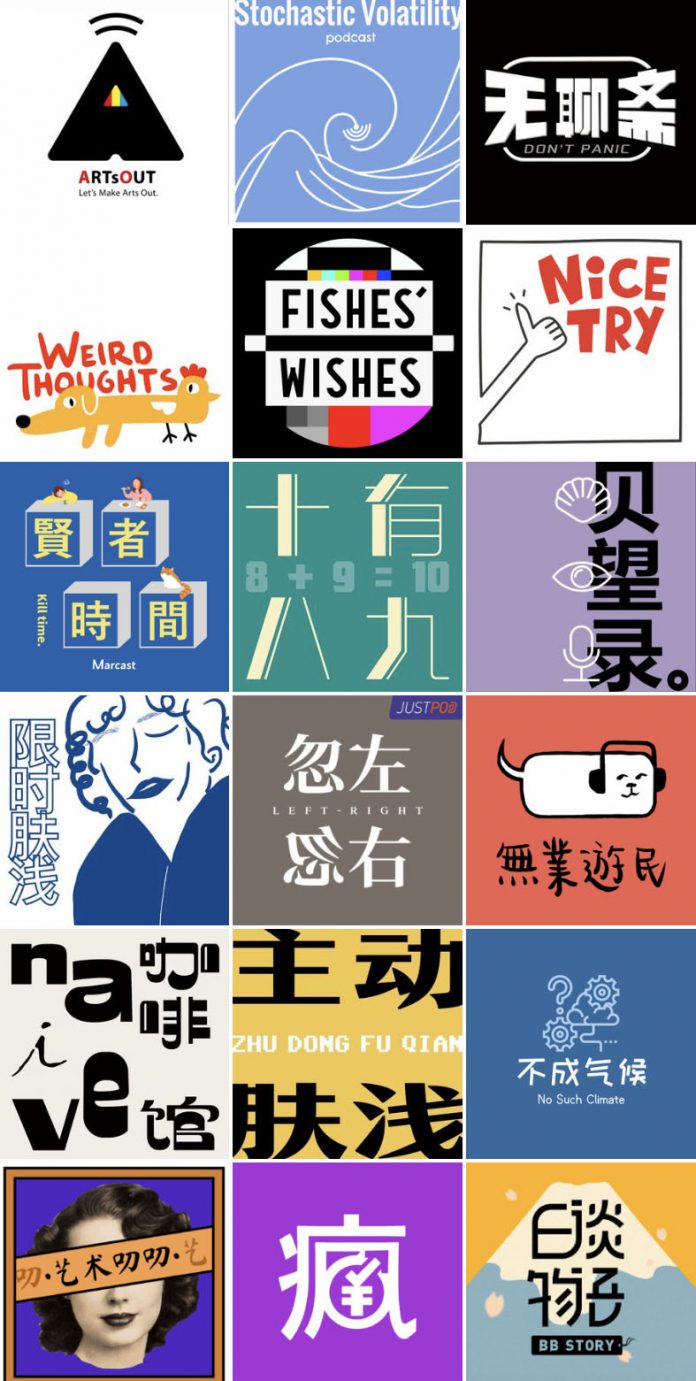While 2020 was marked as a banner year for China Podcast, the industry remains niche and faces heavier censorship.
By Ryan Li in Shanghai
When Shawn Gong initiated his programme Liqi X Podcast (利器X播客) in January 2019, his goal was to find out how Chinese podcasters produce their series and to provide practical information for beginners in this field.
Having interviewed around ten independent podcasters in China, he found that it is easy to join but difficult to stay in the industry.
Gong says podcasters have to decide what to talk about and whom to talk with when preparing for an episode. Discussion outlines have to be written and communicated with guest speakers in advance.
“It seems easy to simply talk in podcasts, but it takes great effort to produce inspiring contents,” Gong says.
2020 Boom
Chen Caiwei is a bilingual reporter and a former English podcast producer based in Beijing who used to produce works for other programmes. She decided to start her own show in January 2021.
“Podcasts have drawn much attention in 2020, and I would like to have my own show at the beginning of a new year,” Chen says.

Her first episode was about YouTuber Uncle Roger, a Malaysian American famous for criticising westerners for wrongly cooking egg-fried rice, and went on to discuss self-identity of Asian Americans.
As a member of “Generation Z” herself, the 24-year-old lady wants to do something new in the podcast market. “I’ve always wanted to be a critic discussing internet phenomenon from a youngster’s perspective,” Chen says.
The podcast industry in China witnessed a boom in the last three quarters of 2020, with thousands of newcomers like Chen joining the field. According to ListenNotes, a podcast search engine and database, 6,539 new Chinese podcast players joined the market during this period.
Podcast is nothing new to China. Podcast programmes such as Antiwave (反波), in which the hosts examined Chinese media in a critical way, can be traced back to 2005. But it took a long time to build an audience.
Play with the Rules
While 2020 was marked as a banner year for China podcast, podcasters are wary of censorship as popularity of the medium grows.
Qi Zhenyu started The Unemployable (無業游民) with several friends in 2018. He came to Hong Kong in 2010 for graduate study, and worked as a journalist for various local media for 6 years, including covering Chinese politics for The Initium, a Hong Kong-based online media outlet.
Since all media outlets Qi worked for are blocked in mainland China, Mainland Chinese without Virtual Private Network (VPN) cannot read stories he produced. Through podcast, Qi wants to reach to those inside the Great Firewall of China.
But it is not easy. As a former Chinese politics observer, he knows well that not a single field in China can go beyond government’s control. Podcast is no exception.
“I am not optimistic that Chinese podcasts could broaden the boundaries of public discussion by a large margin,” he adds.
“Are there any podcasts covering controversial political issues? Have any of them discussed the flood that happened in Southern China during July and August?”
There is growing evidence that podcasts aiming at discussion of politics are under increasing pressure in China. Podcast programme Surplus Value (剩餘價值), in which three female media practitioners discuss social issues from a feminist perspective is one example.
The show was permanently suspended in February 2020 after one of its episodes criticised government policies, such as shutting down Wuhan city during the outbreak of COVID-19, as improper. Its Weibo and Alipay accounts were also shut down.
“Are there any podcasts covering controversial political issues? Have any of them discussed the flood that happened in Southern China during July and August?” Qi asks.
The answer is no. But it does not mean that nothing can be done.
“Sometimes playing with the rules is like writing an essay with an assigned topic, and this is exactly what most current Chinese podcasters, who are also former professional media practitioners, are good at,” Qi says.
The three podcasters of Surplus Value, after the programme was permanently shut down, established a new podcast Stochastic Volatility (隨機波動) in March 2020, using the same initials in English, covering similar topics.
“I still believe that there is space to work around the system and do something interesting,” Qi adds.
“Sometimes playing with the rules is like writing an essay with an assigned topic, and this is exactly what most current Chinese podcasters, who are also former professional media practitioners, are good at.”
An “Unhealthy” Industry
Yang Yi, co-founder and chief operating officer (COO) of JustPod, a Chinese digital audio company which specialises in podcast production established in 2018, thinks the current Chinese podcast industry is “unhealthy”.

(Photo courtesy of Yang Yi)
“It’s not an ideal situation. What’s the point of only having independent podcasts in this field?” Yang says, referring to the situation that most podcasters are independent or amateur, while there are few podcasts produced by big companies.
Yang, who is also a long-term podcast industry observer, witnesses that in the U.S., leading production agencies such as New York Times, NPR and Gimlet media coexist with independent podcasts covering trivia such as pizzas or elevators.
Data from Edison Research and Triton Digital, which conducts market research for businesses and media organizations, shows that 55 per cent of Americans aged 12 or above have listened to a podcast in 2020.
In China, most listeners were young and single, highly educated and living in big cities, according to the Audience and Consumption Research conducted by PodFest China, an annual conference for Chinese podcasters and others involved in the field, in 2020.
“Since these people only constitute a minority of the whole Chinese society, it’s definitely problematic that they take up 90 per cent of the resources of podcast as a medium,” Yang explains. “Podcast should be accessible to everyone,” he says.
Yang also observes that most podcast shows are conversations and talks. He thinks such tradition can be traced back to the country’s traditional broadcasting system.
“Talk shows or phone-in programmes are typical. That’s all we know about audio. We’ve never listened to anything else,” he adds, referring to the lack of narrative and fictional shows telling intriguing stories in China’s podcast market.
But Yang also believes Chinese podcasts have great potential to develop and create their own way. How diverse podcasts are professionally and institutionally produced in more mature Western markets can be learnt and applied to China’s context.
“To a certain extent, we are standing on the shoulders of giants,” he says.
Edited by Savoki Zhang
Sub-edited by Laurissa Liu







































